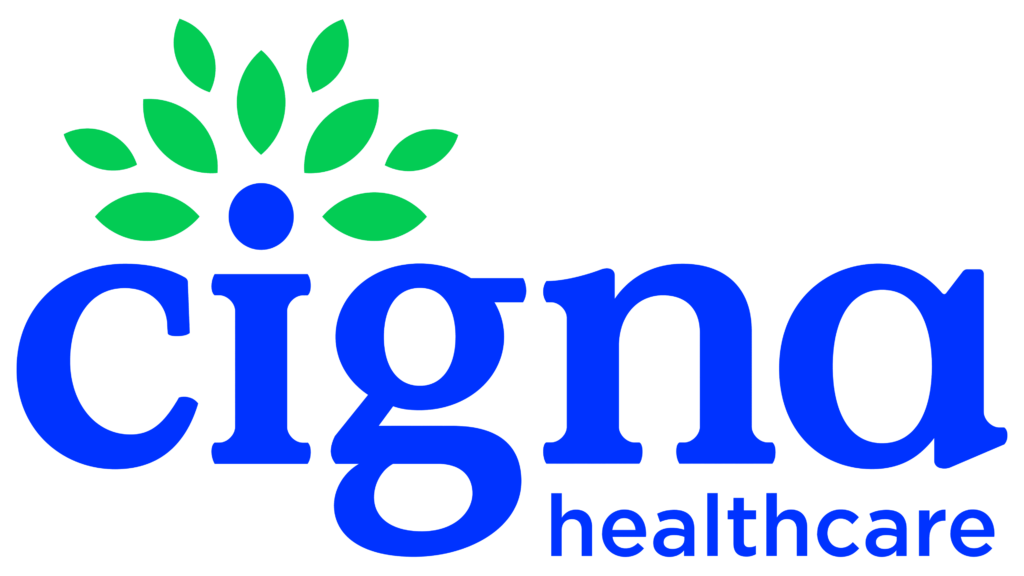Start Your Anxiety Treatment
At One Stop Psychiatry in Florida, find individualized anxiety treatment from board-certified therapists and psychiatrists. For a long-lasting recovery, we provide medication, evidence-based therapy, and support. In-person treatment is available in Fort Lauderdale, Palm Beach Gardens, and Miramar, Florida, to help you begin your road to recovery. Our caring staff is available to assist you whether you would rather visit our nearby clinics or have virtual sessions.
- Book An Appointment Within 24 Hours
- Meet Your Expert Provider
- Medication Management & Ongoing Therapy
What is
Anxiety?
Anxiety is a completely normal reaction to stress, but when it starts to feel overwhelming or becomes a constant presence, it can really disrupt your everyday life. Whether you’re dealing with panic attacks, constant worrying, or social anxiety, we offer tailored care plans to help you regain your mental peace.
Common Symptoms of Anxiety
Panic attacks
Constant worry or fear
Difficulty concentrating
Restlessness or irritability
Avoidance of social situations
Trouble sleeping
Types of Anxiety Disorders
Generalized Anxiety Disorder (GAD)
People with GAD have persistent, pervasive feelings of anxiety or dread that do not have a specific focus. It is not a response to a stressful situation that then dissipates once it is over, but a persistent feeling of worry that can affect many aspects of everyday life.
Panic Attacks
Panic disorder involves sudden, intense episodes of fear that can trigger severe physical reactions when there is no real danger or apparent cause. Panic attacks can be very frightening, making individuals feel as though they’re losing control, having a heart attack, or even dying.
Social Anxiety Disorder
Separation anxiety
Obsessive-Compulsive Disorder (OCD)
Obsessive-Compulsive Disorder (OCD) is a chronic mental health condition that involves intrusive, unwanted thoughts (obsessions) and repetitive behaviors or rituals (compulsions)
Certain mental health conditions share traits with anxiety disorders. This includes post-traumatic stress disorder (PTSD) and acute stress disorder. However, the American Psychiatric Association classifies these as unique conditions, not as anxiety disorders.
How to Diagnose Anxiety?
Similar to other mental health issues, both medical doctors and mental health practitioners can diagnose anxiety. It is common for people dealing with anxiety symptoms to contact their doctor or a mental health professional to talk about their feelings, even if they are unsure of the cause. Some may have serious health concerns, while others may feel very overwhelmed and anxious. Regardless, the way to diagnose anxiety remains the same.
Initially, a medical or psychiatric professional will conduct a psychological assessment. This involves an interview with the individual to diagnose concerning thoughts and feelings. Gathering comprehensive records of an individual’s mental health history is another crucial step within the assessment that professionals will conduct. They will check the criteria of anxiety diagnosis in DSM-5 (Diagnostic and Statistical Manual of Mental Health Disorders, Fifth Edition). To be diagnosed, patients need to fulfill the following criteria:
Individuals experiencing persistent and above described anxiety symptoms along with restlessness and anxiety over 6 months may qualify for clinical diagnosis. This relentless chronic worry often plagues individuals and tends to be a challenge to manage. It is frequently associated with a minimum of three additional symptoms from the following list:
Individuals experiencing persistent and excessive worry on most days over six months or more may be showing signs of an anxiety disorder. This ongoing worry is often difficult to control and is commonly accompanied by at least three or more of the following symptoms:
Feeling restless or constantly on edge
Becoming easily tired
Trouble focusing or frequent mental “blank outs”
Increased irritability
Tension in the muscles
Difficulty falling or staying asleep
A mental health professional or physician will evaluate these symptoms and assess their frequency and impact on daily life. This assessment helps determine the type and severity of the anxiety disorder, guiding the creation of a personalized Anxiety treatment plan tailored to the patient’s specific needs.
Coping with Anxiety: Building a Life of Balance and Resilience
Anxiety is a manageable mental health condition, and with proper anxiety treatment like therapy, and lifestyle support, people are able to live productive lives. In connection to self-care, the most important step to controlling anxiety in the long run is integrating self-care into daily life routines. Self-care shouldn’t just be treated like a luxury.
Treating yourself like going shopping or getting spa treatments by many is misleading since self-care is about sustaining daily practices that boost mental and emotional wellness, self-care as a whole is more about the day-to-day things we do for ourselves and is especially vital for those grappling with anxiety.
Here are some foundational self-care techniques that aid in controlling anxiety syndrome in a much better way.
Establishing and respecting personal boundaries
Eating a balanced, nutritious diet
Engaging in regular physical activity
Prioritizing restful, sufficient sleep
Making time for hobbies and relaxation
The aim is to build self-care into daily life, not as a luxury, but as a necessity. By doing so, individuals can stay grounded, reduce stress levels, and better manage anxiety symptoms. Often, people with anxiety put others’ needs before their own, which can worsen their condition. However, learning to prioritize themselves allows for healthier coping and a more balanced lifestyle.
When to See a Psychiatrist: Signs You Shouldn’t Ignore
If you’re experiencing ongoing emotional distress, mood changes, or anxiety that interferes with your daily life, it may be time to consult a psychiatrist. You should consider seeking professional help if:
You feel overwhelmed, anxious, or depressed most days
You’re having trouble managing your emotions, thoughts, or behaviors
Your sleep, appetite, or energy levels have significantly changed
You’re withdrawing from family, friends, or responsibilities
You’ve experienced trauma or loss and are struggling to cope
You’re relying on substances to get through the day
Talk therapy alone isn’t enough, or you may need medication support
At One Stop Psychiatry, our licensed psychiatrists work with you to understand your symptoms, provide an accurate diagnosis, and create a treatment plan that fits your unique needs, whether through therapy, medication, or both.
Treatment for anxiety often includes psychotherapy, medication, or a combination of both, alongside self-care strategies like relaxation techniques and reducing caffeine intake.
Anxiety Treatment with One Stop Psychiatry
At One Stop Psychiatry, your journey to anxiety relief starts with a comprehensive psychiatric evaluation. During your first visit, one of our licensed professionals will take the time to understand your thoughts, emotions, behaviors, and mental health background. This detailed assessment helps us create a personalized treatment plan that fits your unique needs.
Most anxiety treatment plans include a combination of therapy and, when necessary, medication—both tailored to your symptoms and lifestyle.
We offer two flexible care options for anxiety treatment to support your recovery:
In-Person Anxiety Treatment
For those who prefer face-to-face care, we provide outpatient psychiatric services at our conveniently located offices in Fort Lauderdale, Palm Beach Gardens, and Miramar, Florida. Meeting with your provider in person allows for direct connection and may help some individuals feel more focused and supported in a professional environment.
Online Anxiety Treatment (Telepsychiatry)
If visiting in person isn’t ideal, our telehealth services allow you to receive expert care from the comfort of your home. Through secure, live video sessions, you’ll work with your psychiatrist or therapist just as you would in the office. Telepsychiatry is proven to be just as effective and offers added flexibility for busy schedules or those with limited access to local services.
Call us today at: Ph: (754) 270-6322









To Answer your questions
How do i know if i am feeling anxiety?
Anxiety can manifest itself in many different ways. Some people may experience physical symptoms such as a pounding heart, sweating, or trembling. Others may feel like they are in a state of constant worry or fear, and may have difficulty sleeping or concentrating. Still others may have panic attacks, which are periods of intense fear or distress that can come on suddenly and without warning.
While everyone experiences anxiety from time to time, it becomes a problem when it starts to interfere with your day-to-day life. If you find yourself feeling anxious more often than not, it might be time to seek out treatment. There are many different options available, and a qualified mental health professional can help you find the one that’s right for you.
What type of anxiety treatments do you provide?
There are many different ways to treat anxiety, and what works for one person may not work for another. It’s important to work with a mental health professional to figure out the best plan for you. Here are some of the most common treatment options:
Cognitive behavioral therapy: This type of therapy helps you identify and change negative thinking patterns that contribute to your anxiety.
Exposure therapy: This therapy involves gradually exposing yourself to the things that make you anxious. The goal is to help you learn to manage your anxiety in a healthy way.
Medication: There are several different types of medication that can be used to treat anxiety. Antidepressants, anti-anxiety medications, and beta-blockers are all common options.
Relaxation techniques: Relaxation techniques such as yoga, meditation, and deep breathing can help reduce stress and promote calm.
Lifestyle changes: Making changes to your diet, exercise routine, and sleep habits can also help reduce anxiety.
Can Your Doctors Prescribe Medication?
We are able to prescribe a range of medications on a patient basis to aid in their recovery from a disorder.
Does Your Clinic Accept Insurance?
Yes we accept many insurance plans, including Medicare, Cigna & Medicaid to name a few. Alternatively we also have the option of affordable, sliding scale cash plans.
Do you treat any other type of mental health disorder?
Of course! The One-Stop Psychiatric Clinic has a team of psychiatrists, clinicians, and therapists that provide consistent care with tailor-fit treatments to suit your needs. No matter how you are feeling, we will help you!
